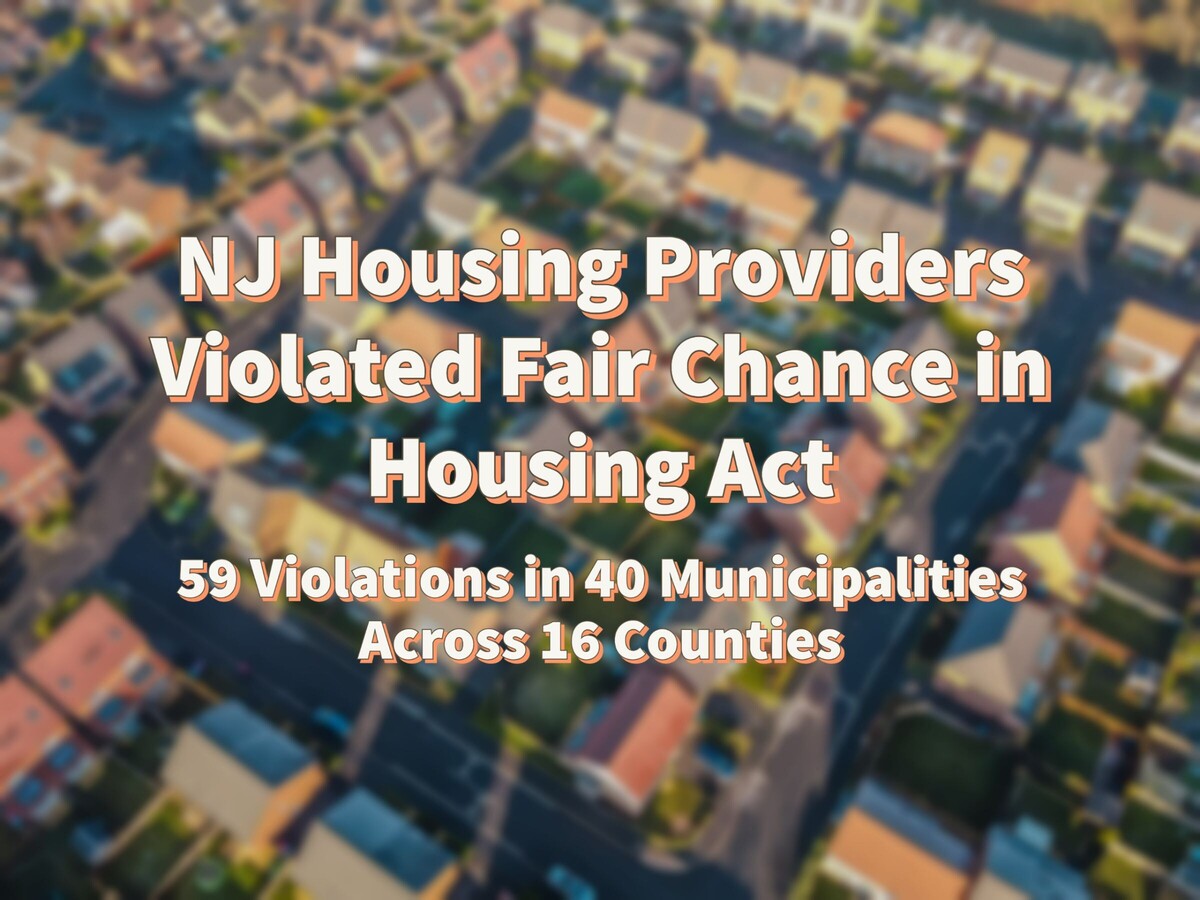Image


New Jersey's Division on Civil Rights (DCR) issued 59 Notices of Violation to housing providers in 40 municipalities across 16 counties in the state for allegedly violating the Fair Chance in Housing Act (FCHA).
The FCHA, which went into effect on January 1, 2022, aims to expand housing opportunities for individuals with criminal records, addressing a significant driver of racial inequality in New Jersey that disproportionately affects people of color, especially Black people.
The Notices of Violation identified housing providers who allegedly violated the FCHA by either asking criminal history-related questions on housing applications, posting housing advertisements or maintaining housing policies that do not comply with the law. Housing providers located in over 40 municipalities across the state were identified.
Attorney General Matthew J. Platkin expressed his commitment to ensuring that individuals with criminal records can return to their communities with dignity and the resources necessary to lead productive lives. He stated that taking action against these housing providers underscores this commitment.
Each Notice of Violation informs the housing provider that DCR is aware of their discriminatory actions and advises that they may face civil penalties of up to $1,000 for a first offense, up to $5,000 for a second offense, and up to $10,000 for any subsequent offense.
Included with each Notice of Violation is an information packet that explains in detail the FCHA and the obligations of housing providers under the law. The packet outlines that it is unlawful for a housing provider to consider certain records when determining the eligibility of a housing applicant, including arrests or charges that did not result in a criminal conviction, expunged convictions, and juvenile adjudications of delinquency.
Under the FCHA, a housing provider is only permitted to ask about an applicant's criminal history or conduct a criminal background check after approving the applicant for housing and making a conditional offer of housing. In most cases, housing providers are not permitted to deny housing to someone simply because they have a criminal record.
Since the FCHA went into effect, DCR has resolved 62 enforcement actions against housing providers across the state. Each housing provider signed an Assurance of Voluntary Compliance with DCR, agreeing to comply with the FCHA fully, adopting written policies, providing training to employees, and making a payment to DCR.